Search the Special Collections and Archives Portal
Search Results
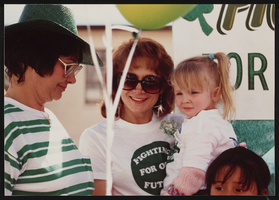
St. Patrick's Day parade, Culinary Union, Las Vegas (Nev.), 1993 March 17 (folder 1 of 1), image 18
Date
Description
Image
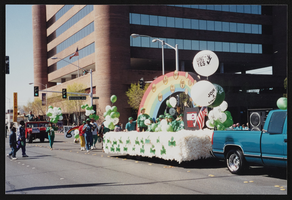
St. Patrick's Day parade, Culinary Union, Las Vegas (Nev.), 1997 March 17 (folder 1 of 3), image 18
Date
Description
Image
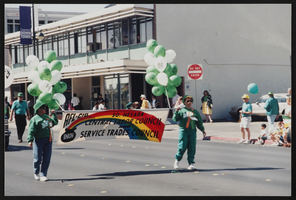
St. Patrick's Day parade, Culinary Union, Las Vegas (Nev.), 1997 March 17 (folder 2 of 3), image 18
Date
Description
Image
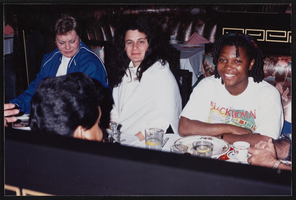
March to Los Angeles: third day dinner, Culinary Union, Las Vegas (Nev.), 1992 (folder 1 of 1), image 18
Date
Description
Image
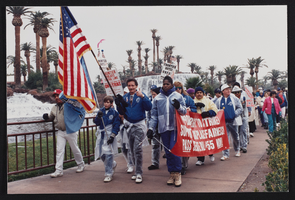
March to Los Angeles: first day of march, Culinary Union, Las Vegas (Nev.), 1992 (folder 1 of 1), image 18
Date
Description
Image
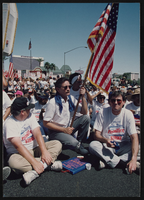
Frontier C.D. Labor Day, Culinary Union, Las Vegas (Nev.), 1992 September 07 (folder 1 of 1), image 18
Date
Description
Image
Dorothy Thompson oral history interview
Identifier
Abstract
Oral history interview with Dorothy Thompson conducted by Patricia Moore on February 18, 1980 for the Ralph Roske Oral History Project on Early Las Vegas. In this interview, Thompson discusses the growth of Las Vegas, Nevada. Thompson also describes her life as the wife of a railroad worker. She briefly discusses religion, specifically Mormonism.
Archival Collection

Floyd Jenne interview, April 4, 1976: transcript
Date
Archival Collection
Description
From the Ralph Roske Oral History Project on Early Las Vegas; OH-00944. On April 4, 1976, Gordon Brusso interviewed Floyd L. Jenne (born 1915). The interview discussed Boulder City McGill, as well as Nevada history.
Text
Mary Cooke oral history interview
Identifier
Abstract
Oral history interview with Mary B. Cooke conducted by Gigi Arino on March 18, 1978 for the Ralph Roske Oral History Project on Early Las Vegas. During this interview Mary B. Cooke discusses previous jobs, personal family history, education, and the growth and development of the city. She also expresses her opinions on the topic of welfare, healthcare and the condition of the hospitals in Las Vegas. Digital audio and transcript available.
Archival Collection
George Lee oral history interview
Identifier
Abstract
Oral history interview with George Lee conducted by Stefani Evans and Su Kim Chung on February 29, 2024 for the Reflections: the Las Vegas Asian American and Pacific Islander Oral History Project. In this interview, Lee describes his four decades of experience as a Las Vegas blackjack dealer (36 at the Four Queens Casino), after leaving behind a career in dance. Lee was selected to originate the role of "Tea" in a 1954 New York City Ballet stage production of The Nutcracker. He also danced in South Pacific at the Thunderbird, and with Carol Channing's revue at The Riviera, and a traveling production of Disney on Parade. After dancing in Alcazar de Paris at the Desert Inn Hotel in 1980, he quit dancing and went to dealer school. He worked swing shift at the Four Queens Hotel, and attended ballet classes at UNLV during the day. Lee, now 89, still works five days a week at the Four Queens. In this interview, Lee talks about ballet, typecasting, discipline, and being "ten times better." He discusses becoming a U.S. citizen in 1959 and changing his surname from Li to Lee.
Archival Collection
